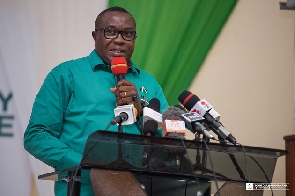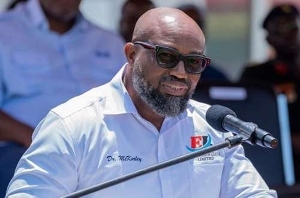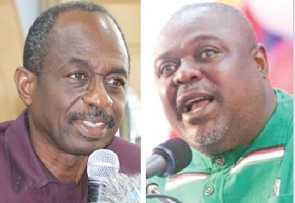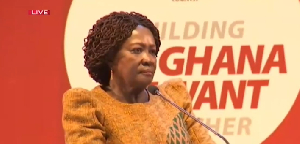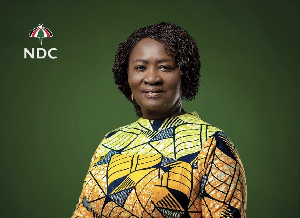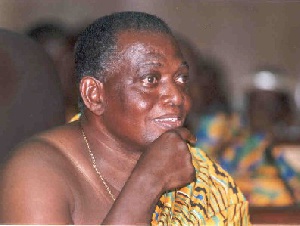 Mr Felix Owusu Adjapong, Former Majority Leader in Parliament
Mr Felix Owusu Adjapong, Former Majority Leader in Parliament
Mr Felix Owusu Adjapong, Former Majority Leader in Parliament and Minister of Parliamentary Affairs, has advised Members of Parliament (MPs) to stop making electoral promises and focus on policy issues and options.
He condemned situations where some MPs go out of their way to make promises they cannot fulfill to electorates, knowing that there were in no position to honour such commitments.
He reminded MPs of their core mandates as stated in the 1992 Constitution, which require that they make quality legislations that seeks to enhance the life of the citizenry and protect their rights, rather than they taking up the positions of implementers.
Mr Adjapong was addressing at a roundtable on “Electoral Accountability and Political Incentives: The challenges of Consensus Building in African Democracies,” which attracted members of Parliament, Officials from the Ministries, Departments and Agencies, Political Parties, the Electoral Commission, Civil Society Organisations, The National Commission for Civic Education and Faith-Based Organisations among others.
The programme was organised by the Institute for Democratic Governance (IDEG)in collaboration with the United States Embassy in Accra, to share useful lessons in consensus building in other democracies.
The concept note explains that extent to which parties compromise and corporate depends to a large extent on the degree of ideological fundamentalism and also some times on the attitudes of a party's electoral constituents and supporters.
Hence, party representatives in the legislature may have a strong political incentive to collaborate and cooperate on policy in it accords with the wishes and inclinations of their electoral supporters, or stretch their policy disagreements to the limit it they perceive that to be the line of their electoral supporters.
According to Mr Adjapong the framers of Ghana’s Constitution were specific about the mandate and functions of MPs, which does not include contract executions in their constituencies.
He called on the Public Accounts Committee to strengthen public accountability to prevent MPs from making such promises.
He said it was for this reason that Ghana practices a decentralisation system that delegates power from the central government to the local levels through district assemblies, for effective development, and this is expected to give the three major arms of Government, made up of the Legislature, Executive, and Judiciary, the time to focus on their core mandates.
He said although democratic politics is premised on the necessity of difference, diversity and on contestation of ideas among the different groups that constitute the political community, consensus building among these groups guarantees the stability and sustainability of the political community.
He said the dispensation, which was founded on a political system that fosters inclusiveness, multiparty democracy and consensus building was therefore more likely to enact policies for the welfare of the generality of its citizens.
Mr Adjapong stated how practicably Parliamentarians in the past have worked through consensus building on issues such as financial approvals and monitoring how state funds were disbursed; therefore current reports of government overspending its budgets are unacceptable and opens the door for great questioning about Parliamentary performance.
He cited among other things the current poor performances of District Assemblies and the collapsing National Health Insurance Scheme all due to lack of funding, and urged MPs to do more in order to live up to their mandate.
Professor Susanna Wing, Associate Professor and Former Chair of the Department of Political Science, Haverford College said a democracy built on only elections was fragile and equated it to a house without foundation, and advised that political opposition should be embraced as vital to democracy.
She shared her experiences on the challenges of consensus building in American politics and West African countries, with special interest in the Malian situation, saying across the world there was an increasing number of countries with declining freedoms.
However unlike the United States where systems have been strengthened to work well, African democracies have various gaps, which pose great risks to their success.
Prof Wing said Ghana needs to think seriously about achieving consensus and reviewing the constitution to ensure that MPs become accountable to the people who elected them, adding that unless there is electoral accountability elected officials have little incentive to deliver on promises.
She said the critical issue is a shift from the culture of political patronage to that of policy concerns for the wider good.
Prof Wing said political incentives are fundamental to bipartisanship and consensus building.


